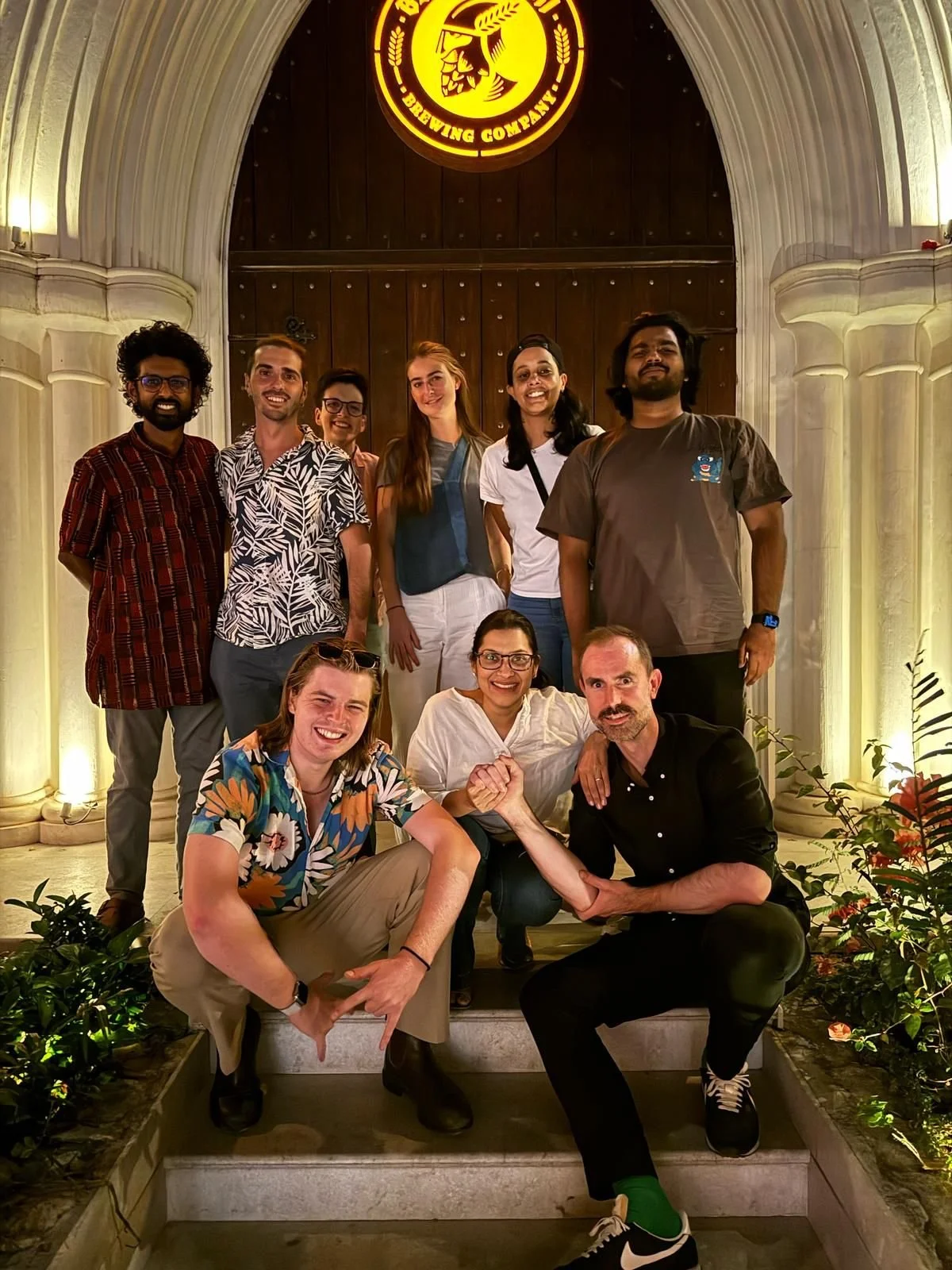Agents of Change
Heading to India for a second time was definitely not on my to-do list. My previous time went south thanks to my sensitive stomach and some street food I should have steered clear of. I was scared shitless (pun intended, sorry!). However, when I heard ‘AI for Global Impact’ was on the agenda, I thought it would be worth the risk. I was right!
3 days in Bangalore with The Agency Fund, Tech4Dev and Nonprofits at the frontiers of AI for Global Impact
— From Codie Roelf, SameSame’s CTO
Heading to India for a second time was definitely not on my to-do list. My previous time went south thanks to my sensitive stomach and some street food I should have steered clear of. I was scared shitless (pun intended, sorry!). However, when I heard ‘AI for Global Impact’ was on the agenda, I thought it would be worth the risk. I was right!
At the start of March this year, I travelled to Bangalore to attend a three-day sprint organized by The Agency Fund and Tech4Dev, joining representatives from organizations across the world who were all exploring ways that AI could be used to create social impact.
The days were jam-packed. My first thought glancing at the schedule was, "Whoah, this is hella overwhelming". The idea of trying to do something meaningful with AI is intimidating — you think about all these big companies that are doing such big things with AI and you start to wonder, “What can our small organisation do that would bring anything of value over and above what is already being done? We are no Google or Facebook.”
Then, the sessions started and in one presentation after the next, data scientists and engineers were sharing incredible examples of evaluation strategies and AI use-cases that seemed like rocket science they were so advanced. More than a few times I found myself googling under the table to keep up.
That didn’t last long, however. Very quickly I began to see that even our small team can achieve big things with AI.
I am a list maker and just read things better that way. Here is another blog about the sprint that is not in a list format. If you’re similar to me, however, then here is my list of what I learned during my 3 days in Bangalore:
The karaoke scene in India is amazing. It's shocking how much 60 strangers can bond over singing Taylor Swift's ‘Love Story’.
Your users know themselves, what they want and need better than anyone else. Include them in the design process.
Evaluation is essential, and it involves a lot more than manual tests of all the use cases you can think of and then hoping for the best. You need systems in place that can test thousands of inputs and outputs in a rigorous and systematic way.
Careful monitoring, with a ‘human-in-the-loop,’ is absolutely necessary in the early stages, and often throughout the development process.
Don't just start small. Have multiple levels of MVPs, small, medium, large, and use the smaller ones to build onto the bigger ones. Attack AI on all levels.
AI agents are a good way of breaking up a huge AI goal into something more like microservices that can each be evaluated for their specific purpose.
It’s not as easy as I thought it would be to find my favourite sugar free drinks (I drank way too much Diet Coke)
Everyone I met was so helpful and willing to share, whether it be their code or their sweeties (what we call candies in South Africa), their code or their lessons — so you don't have to make the same mistakes. This is the best thing about working at a non-profit.
I saw 'closing circle' on the agenda and genuinely had no clue what it was. At the end of the sprint, we all stood in a circle, passed the mic around one by one, and each had to share what we thought we could offer and what we needed from the community (author panics in imposter syndrome!). I could not think of a single thing, except great football banter (Go Liverpool!)
You don't need to be a rocket scientist, to know the deep statistical math, but you do need to work with the experienced and intelligent people that can do whatever version of rocket science you need to be done.
You need to make sure you have data ethics training or someone on your team who is thinking about protecting your users. The AI world is changing fast, and how we are using AI is changing too and thinking through ethics is a constant effort.
Get informed consent from your users by telling them exactly how their data will be used and what it will be used for. This seems like an obvious one, but if you are not hosting an AI model yourself, this could inform which models you use.
Lastly, India's food is rather lovely when you don't take too many chances on street food.
As overwhelming as I felt when the sprint started, I left feeling not only inspired, but empowered with the knowledge and tools I need in order to make more informed decisions around AI. I guess you could say it gave me more agency (Get it? Because it was hosted by the Agency Fund? The Agency Fund? I couldn’t resist)


